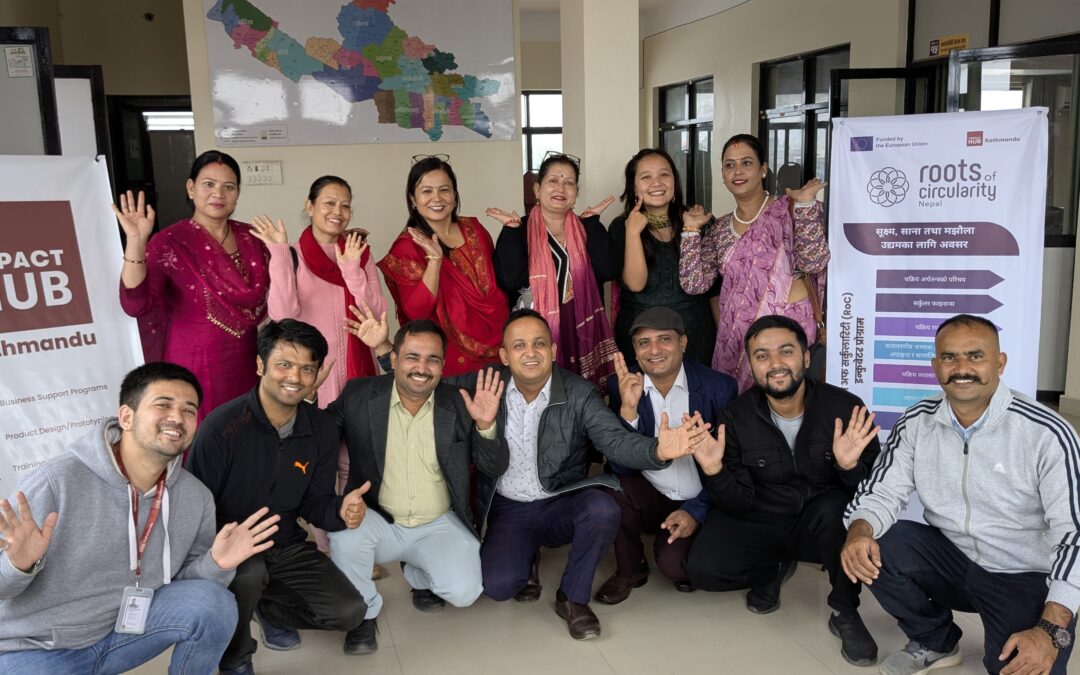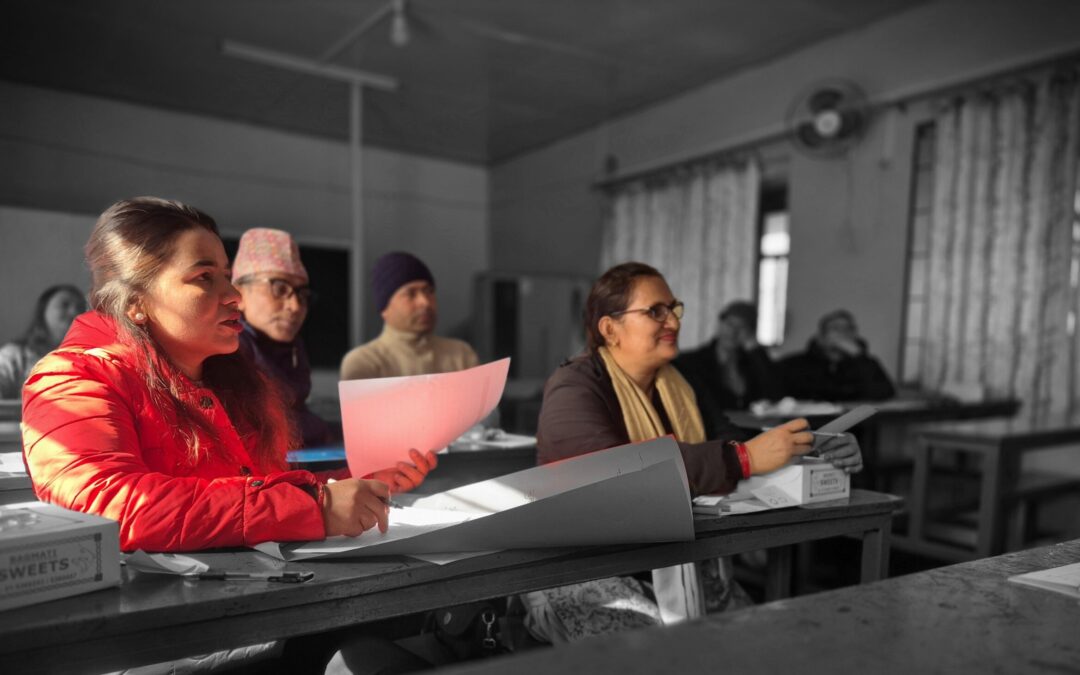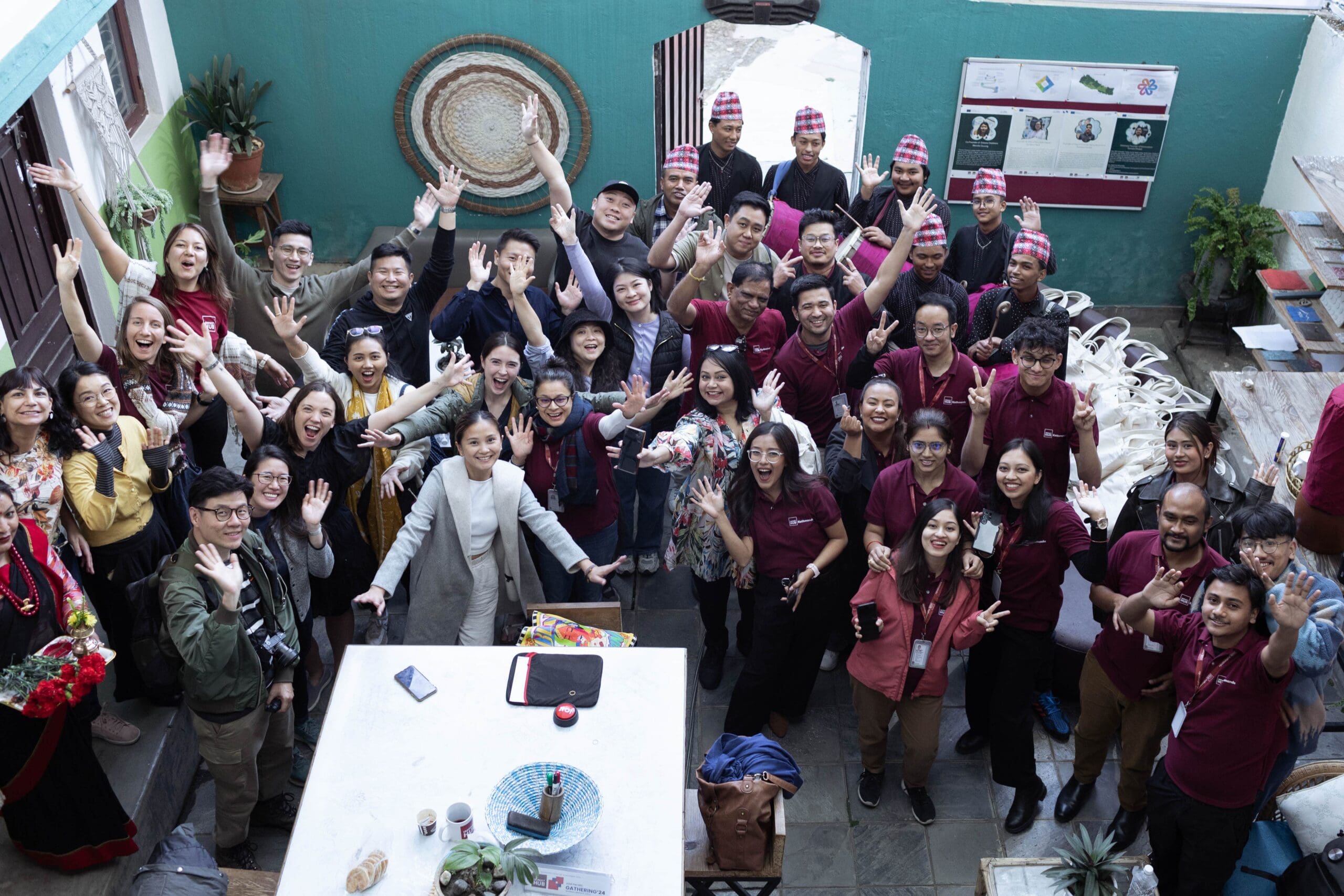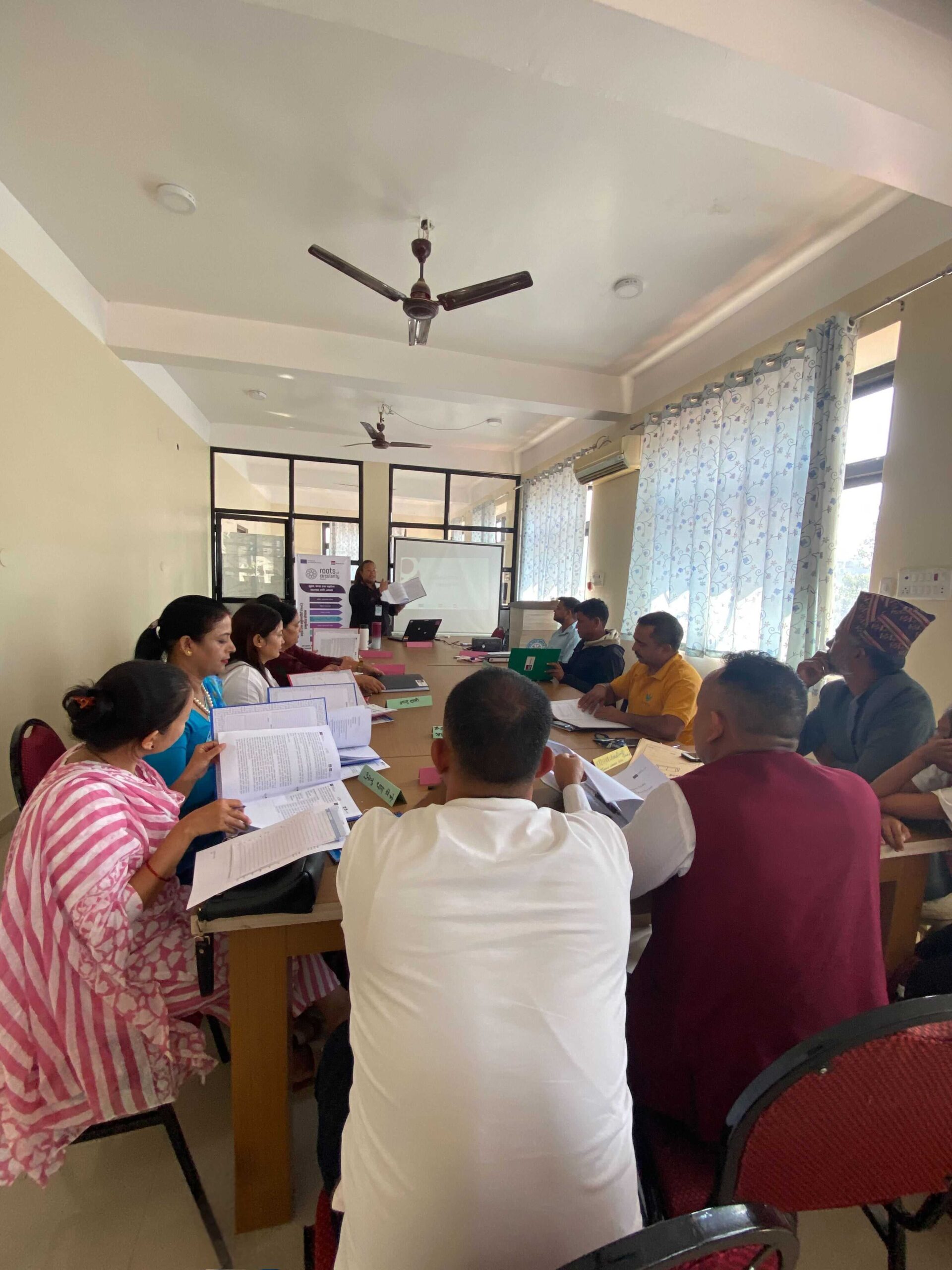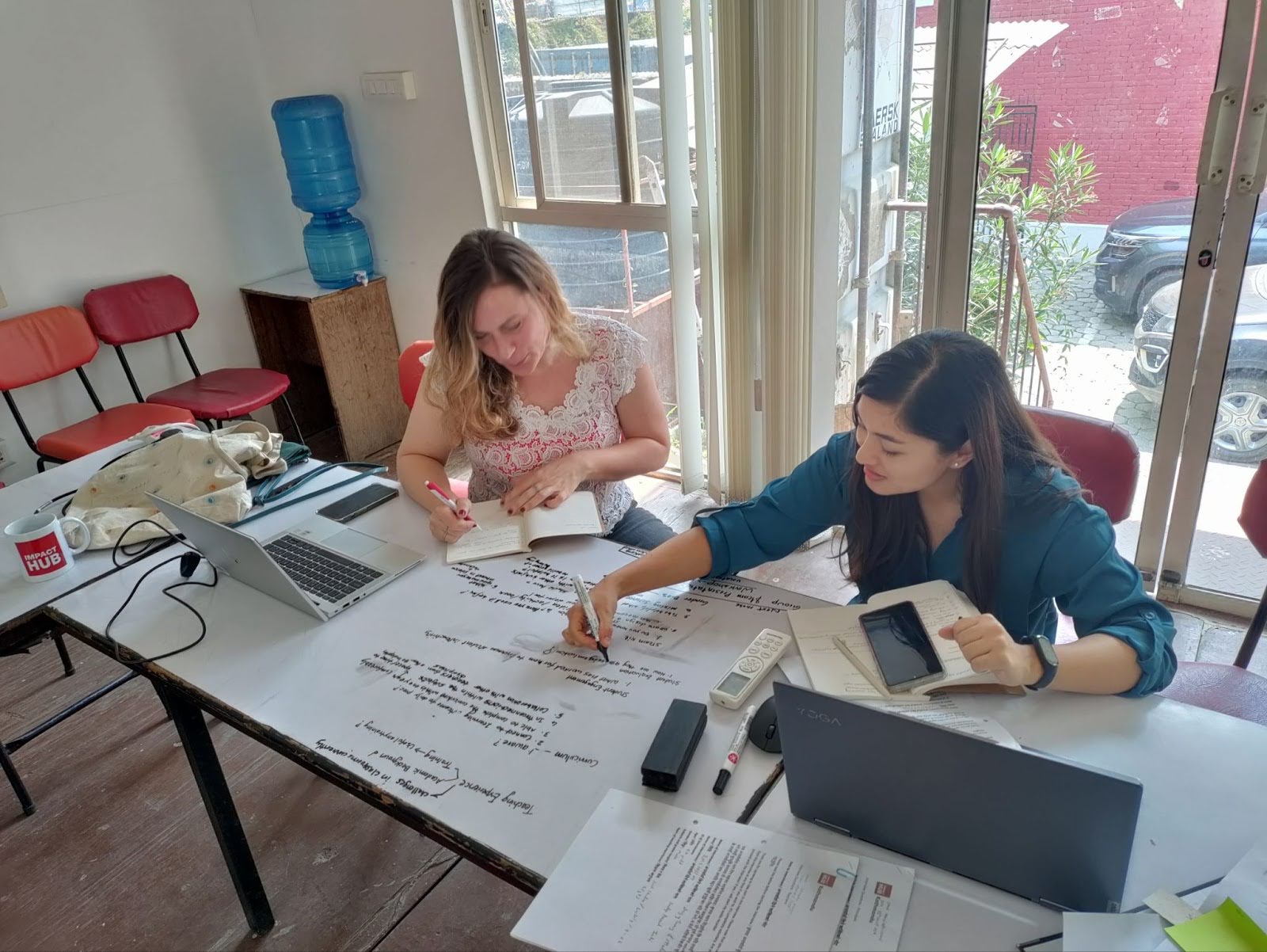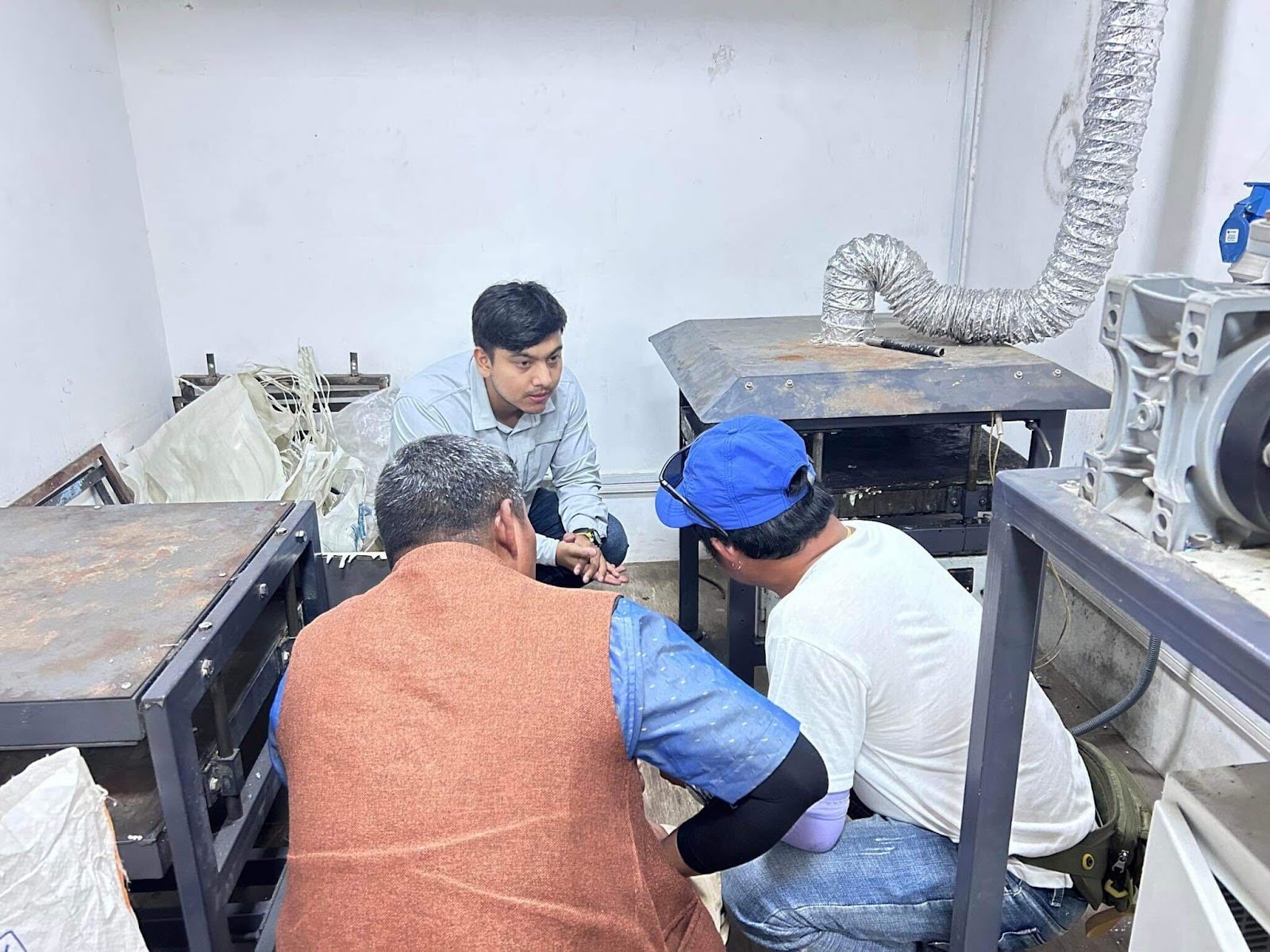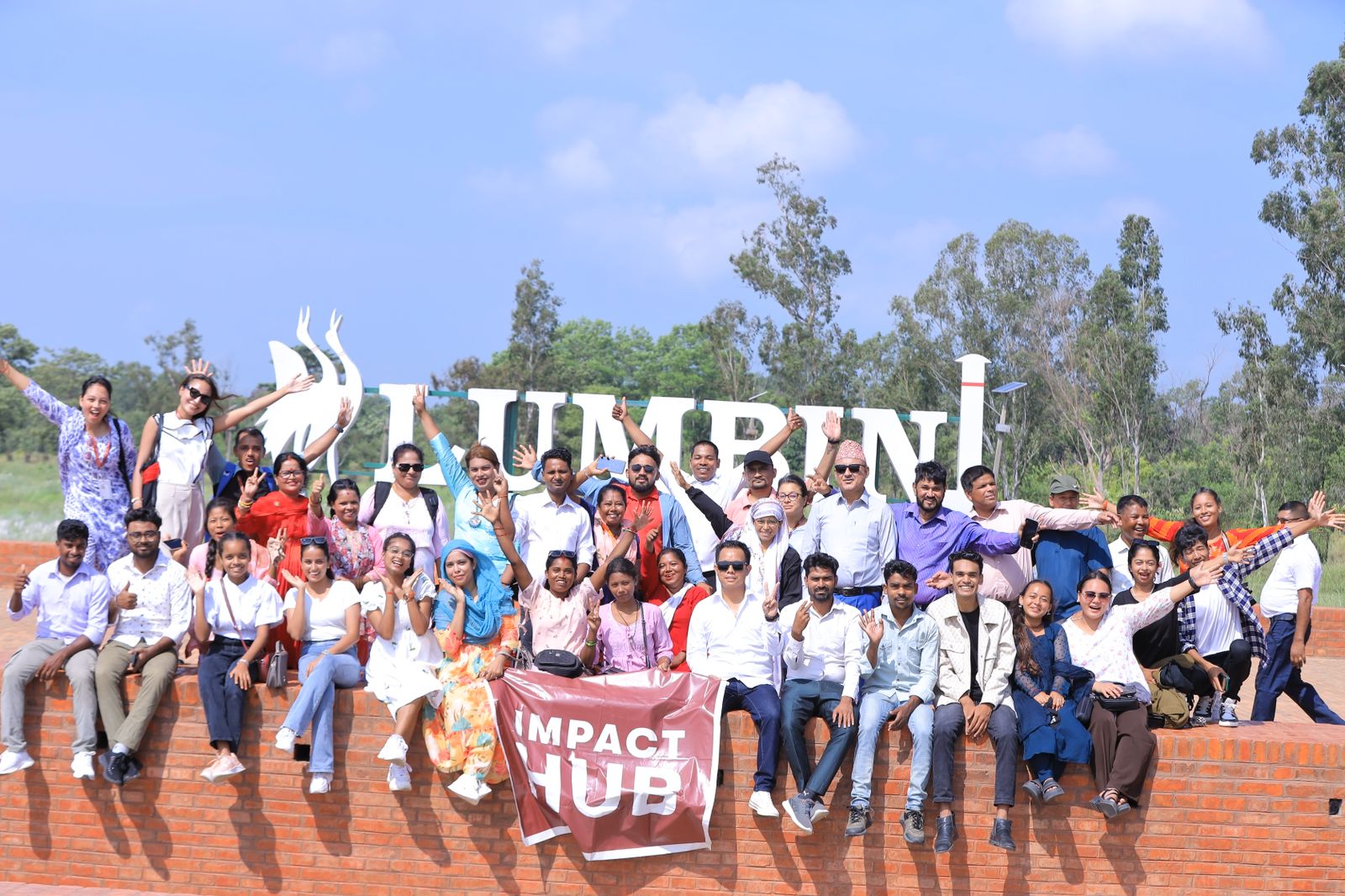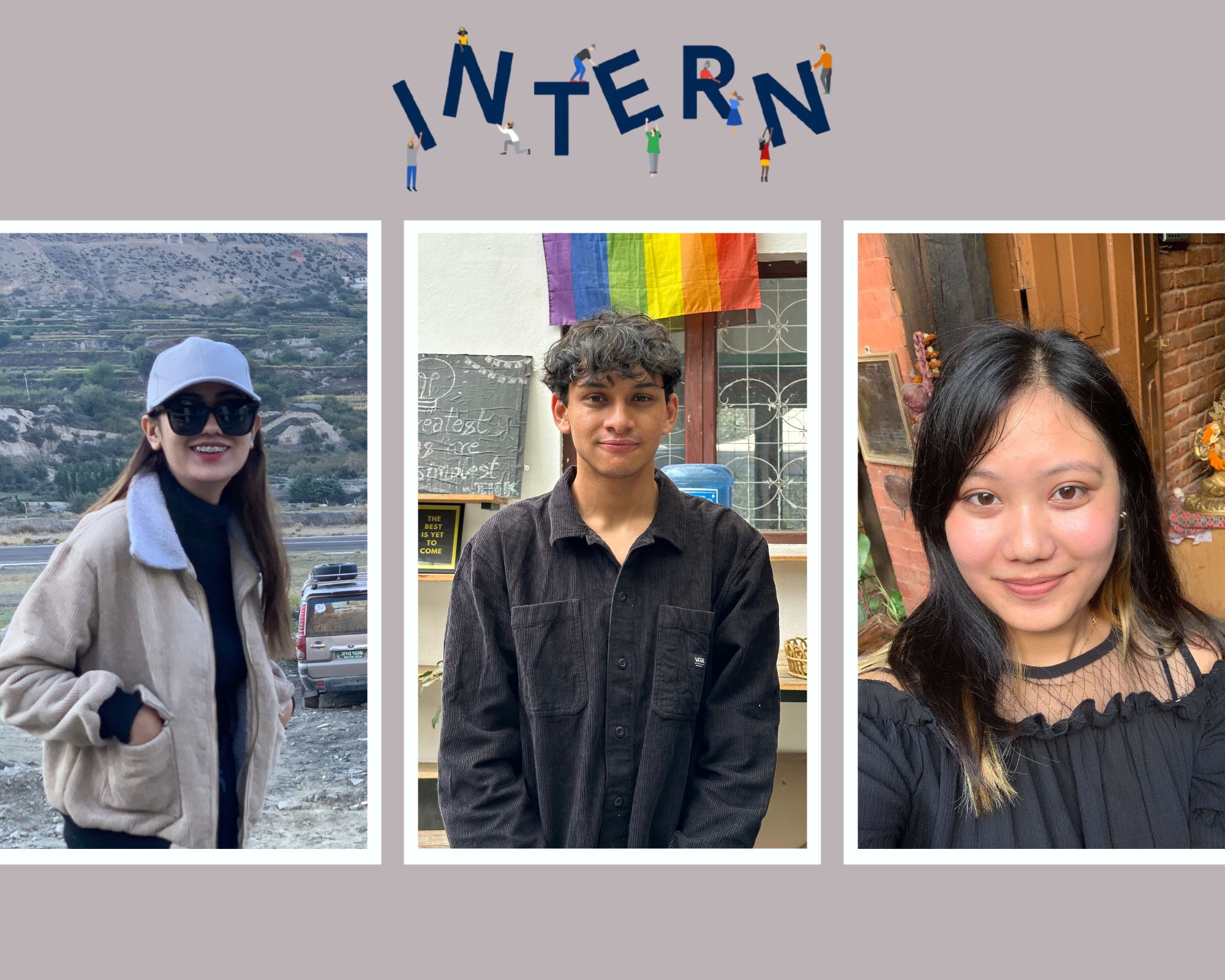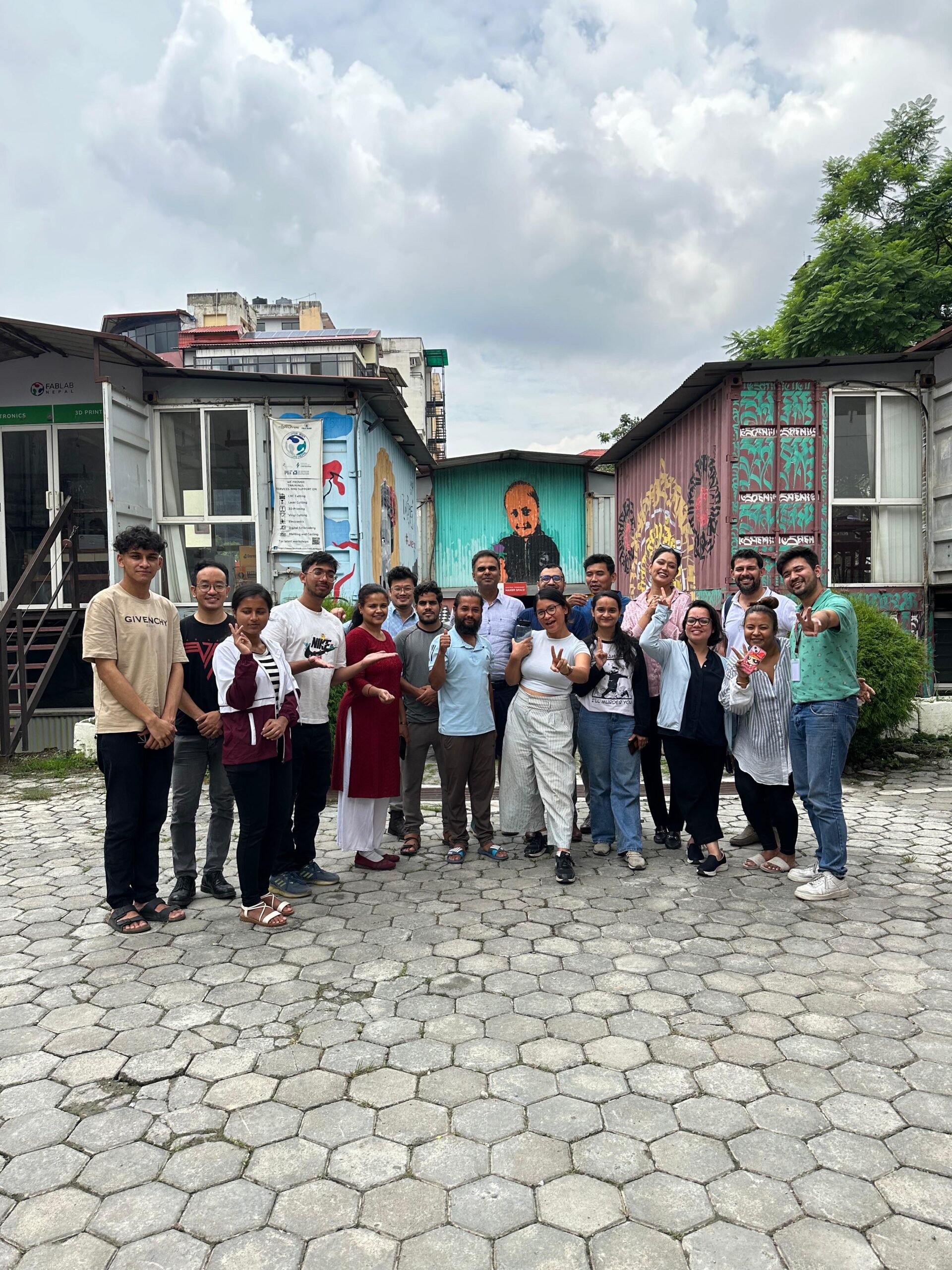The DSA (Disability Association) Girls Team is one of the five national winners of Generation Unlimited 3.0 Nepal organized by UNICEF in partnership with UNDP Nepal, ILO Nepal, and Impact Hub Kathmandu. The team comprises Shakuntala Badi a high school graduate, Nani Maya Tamang, Anjana Chudali, and Junu Maya Bishwokarma who are secondary school students. Based on their own experiences as girls with disability, the girls have initiated the project ‘Himsha Biruddha Ko Awaaz’ to raise awareness amongst schools and communities to create a safe environment for girls with disabilities.

Picture credit: Robic Upadhyay, UNICEF Nepal
According to the 2011 census, the population of people with disabilities is 1.9% of the total population in Nepal, amongst which 3% are identified as women. As per the UNFPA, globally 40-68% of young women with disabilities experience sexual violence before the age of eighteen. The issue of violence against girls with disabilities is less talked about and there is very little awareness in the communities in which we live.
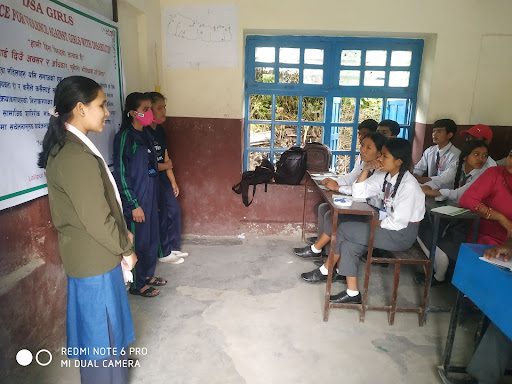
The team shares that girls and women with disabilities are more vulnerable to gender-based violence, enhanced because of disability-based discrimination and stigma against disability. They are more exposed to the risk of perpetrators because of limited mobility, social exclusion, and lack of accessible physical infrastructure. The team recognizes that gender-based violence against girls with a disability is aggravated if the individual belongs to a marginalized community. A person with a disability’s gender, ethnicity, economic background, caste, and geographic location are some of the factors compounding the existing challenges for girls with a disability that are yet to be addressed or raised. Hence, the team aims to develop and incorporate an intersectional lens into existing campaigns happening against Gender-Based Violence.
DSA girls aim to end the stigma against young women with disabilities through participatory and creative awareness campaigns in schools which also allows young women and girls to share their experience, create a safe space for survivors and develop empathy to bring necessary changes in the policies, infrastructure and behavior towards people with disability through sensitization. These sessions are organized to encourage action against violence and to build awareness of the necessary steps to report violence.
The team has been implementing their project in different government schools in Kathmandu valley. So far, the team has held creatives campaigns with students in five different schools, Adarsha Saula Yuvak Secondary School, Namuna Machhindra Secondary, Rudrayani Secondary School, Tri-Ratna Secondary, and Yuva Pratibha Secondary through art, close sharing circles, and poetry writing competition. The team strongly believes that awareness is the key to enabling a safe environment that is inclusive and accessible. Each of the engagements is designed to give voice to the voiceless and create allies in the disabled community.
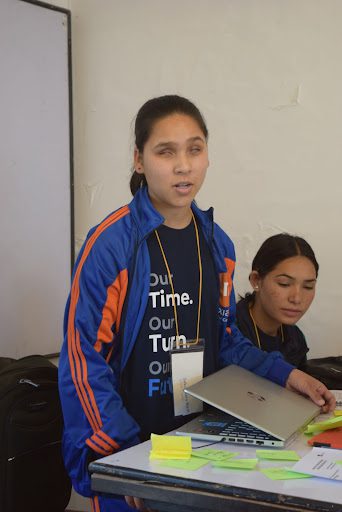
“We think public awareness changes not just Nepal but the world. Our main goal or vision is that girls with disabilities can perform if their family and society provide a safe environment for them to be independent and feel less vulnerable. If violence is countered through awareness, girls with disabilities can live independently, earn a living, and have a dignified life. When girls with disabilities in Nepal are free from violence such as economic insecurity, social discrimination, mental stress, verbal abuse, etc. then we are successful in our goal. We are going to make girls with disabilities free from violence like physical and mental violence and how to save oneself from different forms of abuse, but also aware people without a disability on how to be more empathetic and ally to the disabled community.”
Sakuntala Badi and Team
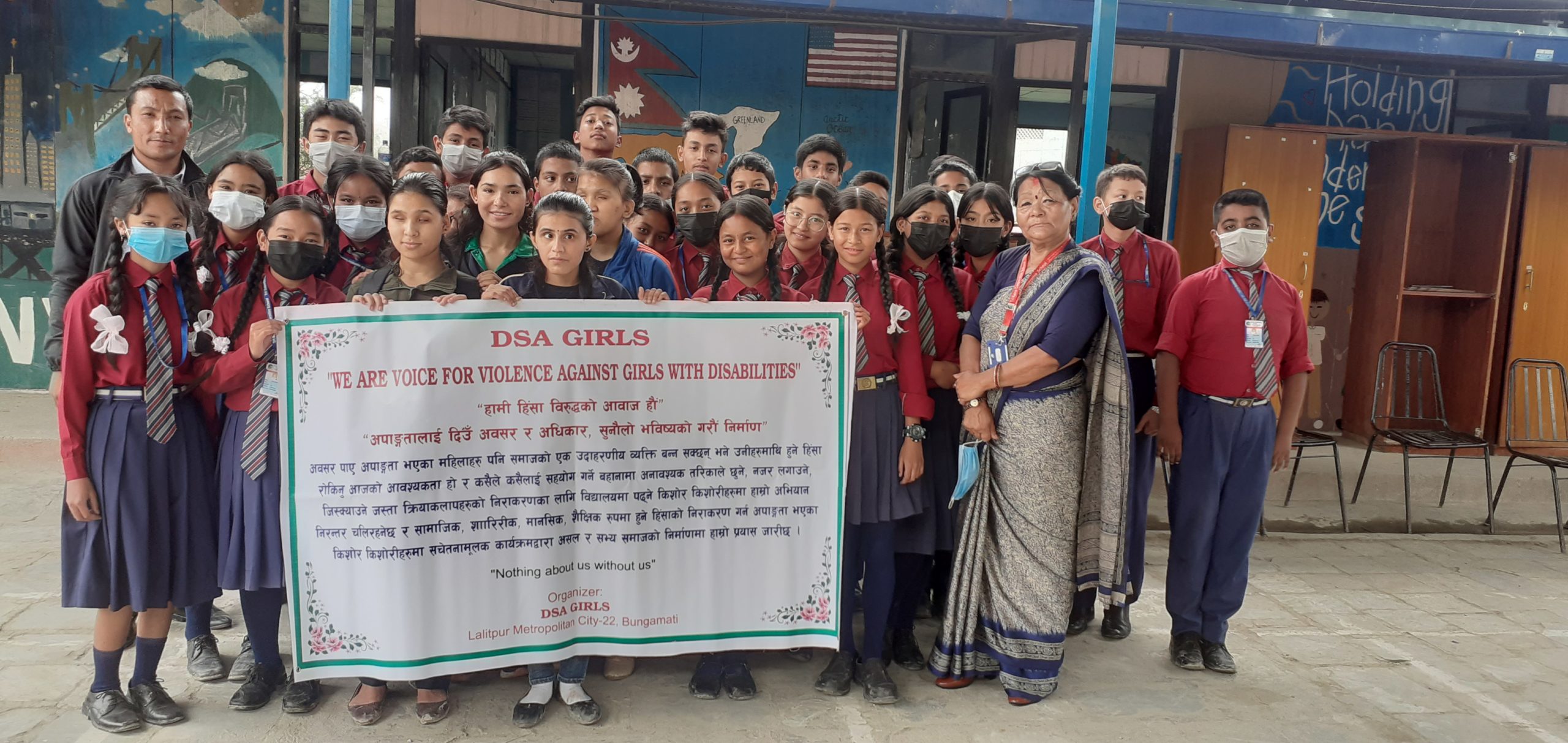
DSA Girls during their campaign, “HimshaViruddha Ko Awaaz”
This young and vibrant team is on a mission to educate, empower and inspire young women and girls with a disability to fight back against gender and disability-based violence. If you are a mentor who can guide them, have materials to strengthen their advocacy, or have ideas for collaboration, then we welcome you aboard to support, share and strengthen their amazing vision!


